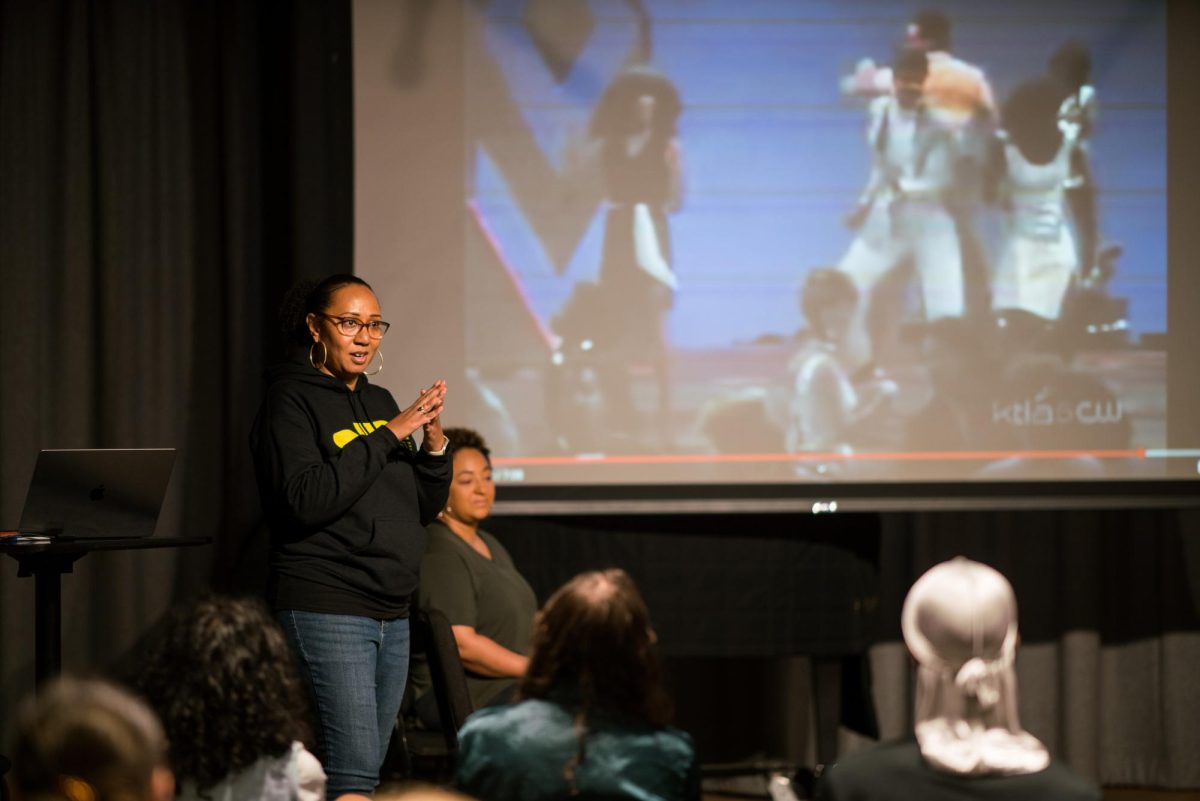2023 marks the 50th anniversary of hip-hop. The universal influence of the genre is undeniable, transcending music and becoming a vehicle to celebrate, confront, and understand the world. On Aug. 11, 1973, while performing a set at a club in the Bronx, DJ Kool Herc extended the breakdown of a popular song by playing it back on a second turntable. Thus, hip-hop was born, or so the story goes.
In reality, tracing hip-hop’s roots back to a single origin would be impossible. A multitude of global musical elements came together to create hip-hop, spurred by the 1970s fiscal crisis in New York City. During this era, much of the white middle class fled to the suburbs, and many communities — predominantly African-American, Puerto Rican, and Caribbean — had to face the consequences of America’s ruthless capitalism and racism, such as rising unemployment and crime rates. Hip-hop ignited a light in the darkness. The highly danceable beats and bold lyrics spat in the face of urban despair. Artists built upon each other’s innovations, and the genre exploded across the country.
“Hip-hop is a culture,” Professor of Africana Studies Candice Raynor said. “It’s a movement, and music is one part of it — music, dance, visual art, politics, even certain spiritual practices. There’s just so much there and it’s always been there.”
In observation of hip-hop’s 50th anniversary, Assistant Professor of African American and African Diasporic Musics Courtney-Savali Andrews, OC ’06, hosted a listening party alongside Raynor and Information Literacy and Student Success Librarian Alonso Avila. Students and faculty gathered in the Birenbaum Innovation and Performance Space to hear hip-hop classics from the likes of 2Pac and the Notorious B.I.G. The hosts reflected on their profound connections to the genre and the importance of hip-hop’s underrepresented voices.
“This culture has something to give to us, and it is worthy of passing down,” Andrews said, after pausing “Main Attraction” by Phat Mob.
Students seem to have a knack for identifying rising hip-hop artists before they become famous. Smino, a rapper from St. Louis, performed at Oberlin before the release of his first album, blkswn. Since then, his fusion of soul, blues, and R&B music has gained massive popularity, but he returned to play another concert at Oberlin in 2022. The following year, rapper TiaCorine performed at Oberlin’s Solarity concert, coinciding with her induction into hip-hop magazine XXL’s Freshman Class of rising artists. In the early 2000s, Oberlin hosted an annual hip-hop conference with the goal of showcasing independent and outspoken artists. Even Kendrick Lamar made an appearance at the ’Sco following the release of Section.80.
The history of hip-hop can be read as a record of racial injustices, from Grandmaster Flash’s 1982 song “The Message” to Kendrick Lamar’s 2015 song “Alright.” However, popular associations with hip-hop have often been negative.
“People made a lot of assumptions about hip-hop based on who’s performing the music, or based on the use of profanity,” Raynor said, describing how rap is trivialized.
Unfortunately, the images associated with rap are often violent and misogynistic, largely due to the corporate United States’ exploitation of the genre. Many major record labels encourage these negative stereotypes as a marketing tool, forcing artists into a rigid box. Education surrounding the history of hip-hop and the social commentary behind impassioned lyrics helps counteract these harmful assumptions.
In recent years, hip-hop has gained more of the scholarly attention it deserves. It has entered classrooms and influenced many genres of music. It has shed light on police brutality and the nationwide housing crisis. Hip-hop embodies the spirit of innovation and radical expression, while paying homage to its origins through samples and remixes.
“[The 50th Anniversary] lets us hear firsthand from artists of previous generations in hip-hop to keep that history alive,” Raynor said. “That’s what I think is always important for the future, and just in general in society. It’s part of why the study of history is so important. And to see that happening in hip-hop, to see museums being created, and schools having scholars that focus on hip-hop, makes me feel good about the future.”





